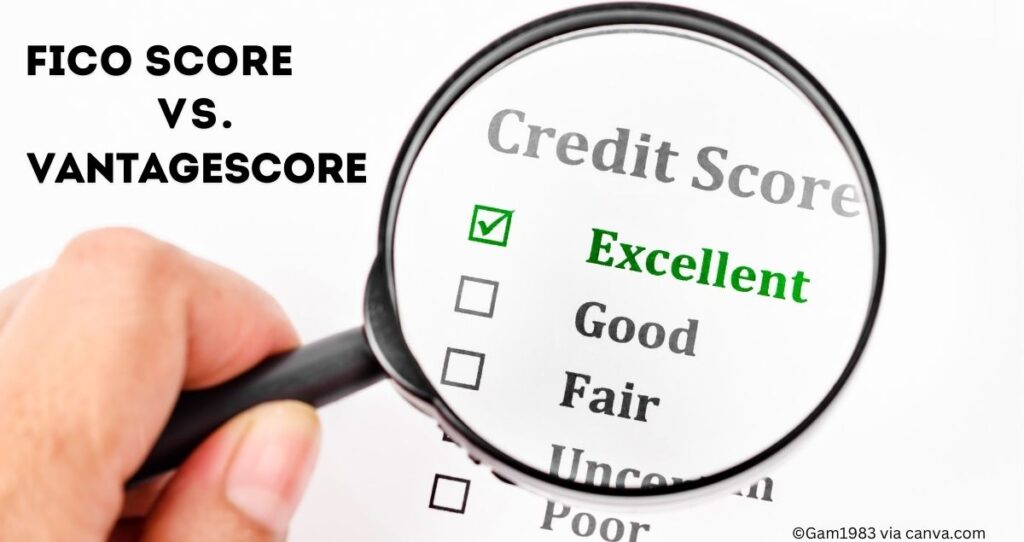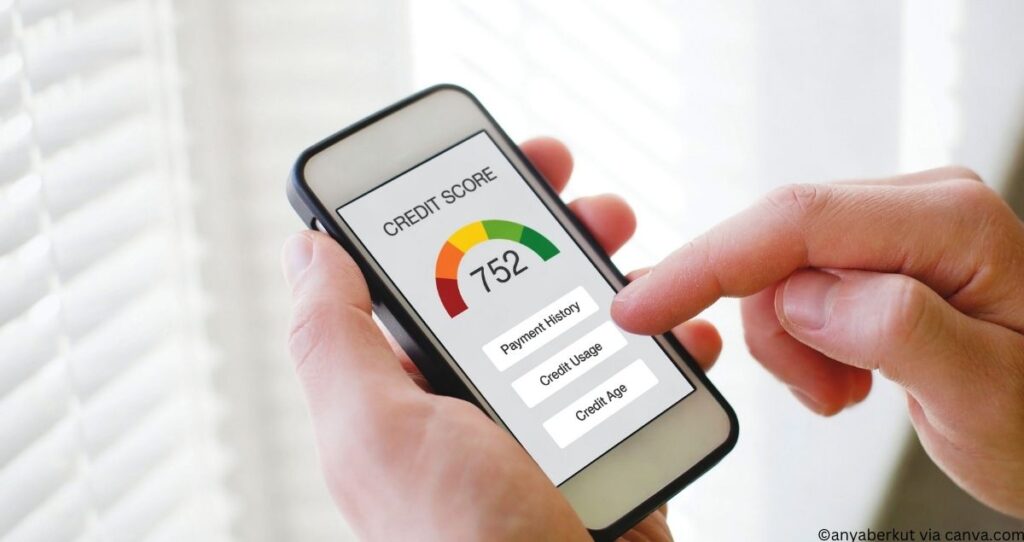Have you ever wondered why you have not achieved financial independence yet? Or why is a paycheck-to-paycheck lifestyle all you know, even if you work so hard daily? You need a financial plan based on strategic saving and investing to achieve financial independence. Just like you need to build a house on a solid foundation, you need a strong financial foundation to reach financial freedom. That means you need to get a job and create an income buffer and an emergency fund as part of your financial strategies. Lowering your taxes is also a critical step in your financial independence journey, as taxes alone can keep you poor for the rest of your life. You must also avoid risky investments and bad debt to avoid losing everything you worked hard for or working hard only to benefit your lender.
It is possible to achieve financial independence, and this article provides a step-by-step guide that anyone can follow to improve their financial situation and build wealth quickly.
Even if you are new to financial planning or don’t know where to start, these nine steps are all you need to reach financial independence. Maybe you tried to save money in the past but have failed to achieve financial independence. No matter your current situation, how much you earn, or your debt, you can quickly follow these simple steps to achieve financial independence. All you need is the willingness to follow this financial independence guide to see results.
What is financial independence, and why should you be financially independent?
Financial independence means having enough income, savings, and investments to afford all your expenses and live comfortably without relying on a paycheck. That is why having enough savings, a solid financial foundation, and assets is critical to reaching financial independence.
While people strive for financial freedom for many reasons, there are common benefits to achieving financial independence. For example, being financially independent will allow you to travel, start your own business, buy your dream home, stop worrying about money, spend time with loved ones instead of working 24/7, volunteer as you wish, and many more. Being financially independent means, you never have to worry about money or deal with financial stress.
Here are the most essential steps to achieve financial independence that anyone can follow to change their lives and economic situations.
1. Make some form of money
Getting a job is the first step to achieving financial independence and being rich like the 1% of the population. I hate to tell you this, but you need a job in your financial freedom journey. You see, building financial resilience is like building a house. To build a strong house, you need a plan and suitable raw materials such as cement, bricks, wood, etc. Think of your home as being financially independent, and your income and financial strategies you implement to achieve financial independence as the raw materials needed to build a house.
You need an income to pay for your basic needs and cover all your expenses. Your rent must be paid, and you need food, water, insurance, etc. You also need some savings to achieve financial independence, as savings means you have money to invest and grow wealth. To save money, you have to make it first!
So, if you are looking for ways to become financially independent but are unemployed, find a job as soon as possible. Even if you don’t like it, you need a job. You must understand that having some form of employment is the most important step to getting rich. How much you make does not matter at all. You must start earning money as soon as possible.
Do you need a job or a side hustle? Check out this list of 49 ways to make money fast.
If you already have a job, move to the second step to achieving financial independence.
2. Build an income buffer
As I said, achieving financial independence is like building a house. Just like you need a strong foundation for your home, you also need a solid financial foundation. This means having good money habits and setting up measures to protect you during financial setbacks. Trust me, you don’t need to ignore this step.
Building an income buffer is one of the most important steps to achieve financial independence. An income buffer is a small saving allowing you to finance minor emergencies before having an emergency fund. I must clarify that an income buffer differs from an emergency fund. After getting a job, save at least $500 to $1,000 into your savings account. This amount will be your income buffer and help you pay for unplanned minor expenses. You can achieve this short-term saving goal in a few months, depending on your income.
For example, if you are driving to work and your tire is blown, you will need your car repaired as soon as possible. Having extra savings will enable you to have the vehicle repaired. Even if you need to pay additional cash, you must do so to keep your job.
Once you have an income buffer of $500 to $1,000 saved, you can proceed to the third step in your financial independence journey.
3. Build an emergency fund
If you have not heard of it yet, you need an emergency fund in your financial planning strategies as much as you need air to breathe. An emergency fund plays a significant role in your financial stability; without it, you might as well forget financial independence.
A solid financial foundation in personal finance refers to your ability to withstand financial setbacks without losing everything. Life can be rough, and being prepared is the only way to protect you, your investments, and your loved ones. That is why you must have an emergency fund to achieve financial independence.
Let me tell you a story about a homeless.
I once talked to a homeless man who told me he earned six figures, had a house, and had a beautiful family. When I asked him what happened, he said he lost his job and his home during the 2008 housing market crash and has been homeless ever since. Before losing everything, he thought he was on the right path to financial independence. This sad story says it all: Lacking a solid financial foundation means you can lose it all during an economic meltdown.
The emergency funds act as a safety net during emergencies. If you lose your job, for example, the emergency fund will help you pay for all your expenses while you look for another job to avoid losing your home, just like the homeless story I told you about. Reaching financial independence is about making a good income and putting protections in place as you build wealth.
To secure a solid financial foundation, you must save at least 3 to 6 months of your monthly expenses. This amount will help you cover emergencies, expensive medical bills, home repairs, etc, without picking up a second job, liquidating your investments, or being homeless.
You might also like: Should you invest your emergency fund for better returns?
Tips to save for emergency fund fast and achieve financial independence
- Set a specific goal, such as six months of expenses.
- Break down how much you need to save each month and each pay period to reach that saving goal.
- Cut back on expenses to increase your savings rates.
- Sell stuff like used electronics and clothes online and declutter your home to sell anything of value you don’t need.
- Put your savings in an account that earns interest, like a high-yield savings account or a CD.
- Use your tax refund toward your emergency fund.
- Use savings challenges to reach your savings goals. Here is a list of the 21 best savings challenges to choose from.
4. Pay off high-interest debts and avoid bad debts
You cannot be financially independent when drawing in debts. Debt is one of the biggest obstacles to financial freedom. Millions of people struggle financially, not because they don’t make enough money but because they have too much debt. This is why being debt-free is an essential step to achieving financial independence.
Some people have student loans, multiple car loans, high credit card balances, and mortgages. You cannot get ahead financially when the bank takes all your money. Now that you have a job and have established an emergency fund, it is time to pay down your debts, the next step in your financial independence journey.
Paying down your debts, by the way, I mean aggressively paying off your debts. Even if you must work multiple jobs to get out of debt, you must do it.
While there are different debt management strategies, I think the fastest way to pay off your debts and become financially independent is to eliminate high-interest debts first. High interest means you are paying too much interest, and eliminating these debts saves you money and frees up cash you can use to invest in your future or increase your retirement contributions. All your debts must be paid off fast except your mortgage, as it takes many years due to a higher loan balance.
Start by eliminating credit card debts and personal loans with high interest rates and APRs. This strategy is known as the debt avalanche strategy, and you can learn how the debt avalanche debt payment strategy works by reading this article.
To use the debt avalanche, follow these steps
- Organize your debts from the highest interest to the lowest interest
- Pay the minimum requirement on each debt.
- Use the remaining amount to pay off the first debt on the list and continue this process every month.
- Once the first debt is paid off, move to the second with the highest interest.
- Repeat this process until all your debts are eliminated.
After paying off high-interest debts, you must avoid bad debts. Bad debts are any debts that cost you high interest and those that don’t help you achieve financial goals. For example, carrying a credit card balance only costs money, leads to financial stress, and does not help you achieve anything.
Credit card debts, car loans, student loans, personal loans, and payday loans are a few examples of bad debts. Borrowing money to buy something means you cannot afford it. Save money first and pay with cash. That is how you take control of your finances and become financially independent.
More tips to manage your debts effectively.
- How to get out of credit card debt fast?
- When are loans good options to use?
- Ten tips to become debt-free on a low income?
6. Watch your spending
Did you know that excessive spending and impulse shopping are leading causes of a lack of savings? Not only are people struggling with debt, but others are having issues with their finances simply because they cannot restrain themselves from overspending. As a consumer wanting financial freedom, you must retain as much of your income as possible.
The truth about money is that it is easier to get money out of your pocket than into your pocket. It is easy to spend money but hard to make it. You cannot reach financial freedom if all you do is pending your income without saving. You must save money to invest in your future, pay off your debts, and achieve financial independence.
There are different ways to save money, but using a budget is always the best way to reduce expenses. Simply list all your incomes in one column and expenses in the other and calculate the difference. The goal is to determine how much money you are making and where it is going. A budget can also help you figure out your needs and wants. A need is something you cannot live without, such as food. A want is anything you don’t need to survive, such as a Netflix subscription.
Go through your expenses, eliminate some or all of your wants, and figure out how to pay less for needs. For example, while you need food to live, you don’t need to buy premium food to survive. Use the 50-30-20 budget rule to cut back on expenses and save money.
More saving tips:
- 15 Things to stop buying and save money fast
- 24 ways to budget and save money during the summer
- 37 Frugal living tips for beginners to save money
Other tips to reduce expenses and save money to achieve financial independence
There are many ways to lower expenses, save extra cash, and achieve financial independence quickly. The following are a few easy and fun ways to save money quickly without sacrificing your living standards on your journey to financial freedom.
- Create a budget and stick to it to keep your monthly expenses in check and track your savings progress.
- Stop ordering groceries online to ensure you get the best quality at the lowest prices possible.
- Make a shopping list before heading to the to avoid impulse shopping.
- Leave your kids at home to avoid having to buy them stuff because they are crying.
- Stop buying delivery dinners and lunches to avoid overpaying for food and tips.
- Plan your meals to avoid eating out daily.
- Buy generic foods and products to avoid spending extra money on unnecessary items.
- Negotiate prices to save money on different products and services.
- Ditch your credit cards to avoid carrying too much balance or overspending on your credit cards.
- Use coupons where possible to save money and get discounts. You can also buy clearance items to save extra cash.
- Use carpooling to save money on gas and car insurance.
- Reduce your electric bills by using smart thermostats, appliances, and LEDs.
- Avoid monthly subscriptions such as Netflix, Hulu, HBO, online newspapers, shopping websites, etc.
7. Lower your taxes
Tax saving is critical in reaching financial independence, as taxes alone will hold you back and keep your entire family poor for generations. Tax is the most significant expense on your income. In addition to the income tax paid to the state and the federal government, you also pay taxes when you spend the money you take home. Every time you buy an item, you pay tax. Some of these taxes are also continuous, such as property tax. Think about it: you purchase a home with already taxed money and continue to pay property tax on the same money.
You must lower your taxes as much as possible to achieve financial independence. How should you reduce your taxes every year? The formula is simple but hard to implement. But, if you are serious about achieving financial freedom, everything is possible.
To reduce your taxes, you must lower your realized income because unrealized income is not taxable. That is how rich people get rich and stay wealthy, while poor people remain poor for the rest of their lives. Have you wondered why poor people pay the highest taxes? Because they realize all their incomes. Poor people have expensive lifestyles, which means they need more money to finance them, and the only way they can get cash is to take home every penny they earn. You always pay a higher tax bill when you realize a higher income.
Instead of having all your paychecks sent to your account, take advantage of all tax benefits you can qualify for. Lowering your taxable income helps you reach financial freedom much faster.
Here are strategies to lower your taxable income to pay less tax and achieve financial independence
- Contribute to tax-deferred retirement plans such as pre-tax 401(k), 403(b), traditional IRA, etc.
- Claim tax credits for adoptions, dependents such as having kids, etc.
- Get medical expenses deductions
- Have your college expenses deducted when applicable
- Contribute to your Health Savings Account(HSA) if you have a high deductible health plan(HDHP)
- Open a flexible spending account(FSA)
- Deduct mortgage interest when filing your tax returns
- Buy investments where earnings are not taxable, such as Municipal bonds
- Invest in long-term tax-efficient investments to pay capital gains tax instead of income tax.
- Claim charitable donations on your tax returns.
- Use proceeds from rental property sales to buy similar rental properties of equal or higher values.
Here is an example of how to use tax savings to lower your taxable income and reach financial independence quickly
Suppose you make $75,000 per year and are 55 years old. We will use this income as an example to simultaneously lower your take-home pay and tax bill. Follow the following steps.
- Max out your 401(k) contributions. For 2024, you can contribute up to $30,500 to your 401(k) plan since you are over 50. In this case, you will have $44,500 left before paying tax. Then,
- Max out your traditional IRA. For 2024, you can contribute up to $8,000 since you are over 50, leaving you with $36,500 before paying taxes. Your entire traditional IRA contribution will be tax deductible since your income is under $77,000 for single and $123,000 for married filing jointly. These are the tax deduction income limits for Traditional IRA in 2024. If your income exceeds these values, your deduction will differ. Read about traditional IRA deduction income limits.
- Contribute to an HSA account. If you are a family, you can contribute up to $4,150 if you are single and $8,300 for a family. So, I assume you are single and will contribute up to $4,150. This will leave you with $32,350 before paying tax.
- Then pay tax. In this case, your taxable income will be $32,350 instead of $75,000. Based on the 2023 IRS income tax brackets, you moved your income from a 22% tax bracket to a 12% tax bracket by taking advantage of the tax benefits you qualify for. This means your federal and state income tax will be much lower. This is how you take advantage of tax benefits and achieve financial freedom.
Note: Taking home a small paycheck means you will not have enough disposable income. So, you need to adjust your lifestyle to ensure that the money you are taking home is enough to take care of all your finances. For example, if you live in an expensive neighborhood, moving into a cheaper location helps lower your rent. Financial independence requires sacrifices, and adjusting your lifestyle is one of many prices you will pay.
8. Invest regularly
Investing regularly is the easiest way to achieve financial independence quickly because it allows you to use compounding interest to your advantage. So far, we have discussed building a financial foundation, good money habits, saving more money, investing in your retirement, and cutting back on taxes. Once these steps are completed, investing money is the next step to reaching financial independence.
Remember that retirement savings is part of investing because the money in your 401(k) plans and IRAs is used to buy different investments such as ETFs, Mutual funds, bonds, etc.
In this step toward financial freedom, we will focus on different investment strategies beyond retirement savings. All you need to do here is open a brokerage account or work with a financial advisor if you don’t know what you’re doing. Then, buy different investments of your choosing.
I prefer mutual funds, ETFs, and Index funds as they are diversified and, therefore, less risky than individual stocks. Buying fixed-income assets such as dividend stocks, bonds, and high-yield deposit accounts will help you earn some income if you want a regular paycheck. These investments pay a fixed income as interest or dividends(for stocks).
For example, you can get as much as 5.2% on a certificate of deposit(CD) and high-yield savings accounts. Bonds, especially Series I Saving Bonds, currently pay a little over 4.0% APY.
- You can buy bonds, T-bills, and similar products directly from the Treasury Direct website.
- Mutual funds, individual stocks, ETFs, and index funds can all be purchased inside your brokerage account.
- Sign up with your favorite bank, credit union, or financial institution to invest in high-yield deposits such as CDs, savings, and money market accounts(MMAs). Online banks and financial institutions pay higher interest than brick-and-mortar banks and credit unions.
Invest as much as possible, focusing only on long-term investments and those with tax incentives. For example, if you buy municipal bonds, you will not pay tax on your earnings. However, your interest on other bonds, deposit accounts, or dividend stocks will be taxed as ordinary income.
9. Build income streams
At this point, you have built a solid financial foundation that cannot easily be broken. To reach financial independence, you need to channel the money you make into all these accounts you have created.
The next step to jump-start your financial freedom journey is to boost your income through different income streams. While you can overwork yourself and probably get a 10% raise, other ways exist to make extra cash. Building income streams is one of the fastest ways to achieve financial freedom. Income streams usually require little work compared to a paycheck from work, and there is no limit to how much you can earn.
The choices are endless, whether you want to invest in income-generating assets such as buying rental properties, investing in bonds, or high-yield deposit accounts. You can also start a side hustle and start making money. For example, if you are good at reading and English, you can get a proofreading freelance gig on websites like Fiverr, Freelancer, or Upwork and make money on the side.
You can also sell used clothes online, donate plasma, or get paid to watch dogs. The choices to make extra cash are endless. Pick what works for you and go from there.
The money you make through different income streams should all be invested to help you build wealth quickly and become financially independent. The biggest mistake many people make is to upgrade their lifestyles after making more money. This is a big financial mistake you must avoid. The extra money you make must buy more investments and assets that generate more income. That is the right path to reaching financial independence.



